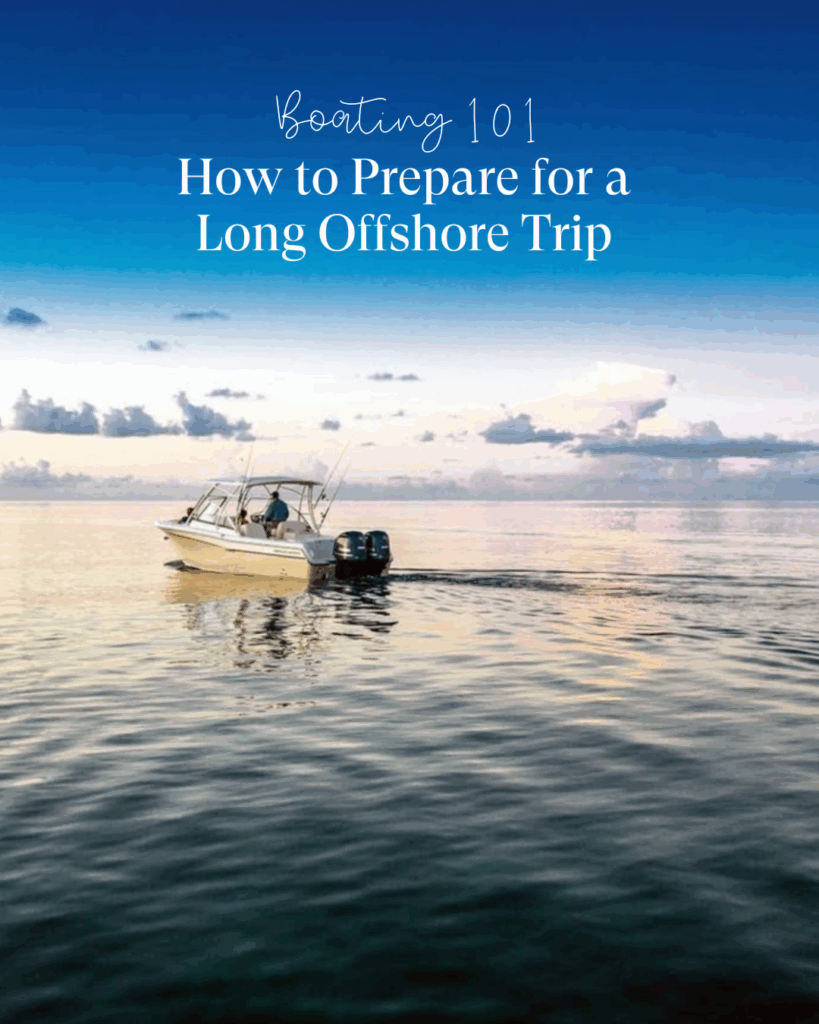
Heading on a long, sun-soaked boating excursion on your Grady-White this summer? Preparation is our top tip for a safe, successful offshore trip. Here’s our best advice for a fantastic adventure, whether it’s fishing or leisure or anything in between.
Create Float Plan
A float plan is an overview of a boat excursion that can give authorities a head start in looking for a boater if he or she fails to reach his or her destination. A float plan should include a description of the vessel, number of persons onboard, destination, including the general route to be taken; contact information; and timeframe of the outing. It should be left with a family member, a reliable friend, marina dock master or anyone else you trust to contact the U.S. Coast Guard in case of an emergency.
Have an Emergency Plan
Create a comprehensive emergency plan for when you’re on board, including procedures for various scenarios like engine failure or a medical emergency. Make sure to have enough food and water for each passenger for several days.
Ensure Crew Preparation
Each passenger should be familiar with the boat and the safety equipment onboard. Ensure that all the safety equipment is in good working condition, unexpired, and that all passengers know where it is stored. A first aid kit and a ditch bag should be kept in an accessible and dry place, and everyone aboard should know where they are located.
Schedule Service or Make Sure Your Boat Is in Good Condition
Inspect the hull, hoses, and tanks for cracks or leaks. Check all fluid levels, filters, and make sure you have sufficient fuel. If you need to schedule maintenance or make repairs, you can do so here.
Make Sure Your Navigation Is Working
Ensure all navigational equipment is in good working order, including your chartplotter, VHF radios, radar, emergency position indicating radio beacon (EPIRB), and night vision camera.
Keep Proper Safety Equipment on Board
This includes properly fitted life jackets for each passenger; a well-stocked first aid kit (plus at least one crew member trained in first aid); emergency food, water, tools and spare parts; and distress signals.
Carry Enough Fuel
Always carry more fuel than you think you’ll need.
Check the Weather Often
Monitor weather forecasts and be prepared for changing conditions. Last minute trip modifications or cancellations happen often due to changing forecasts, and even with the best-laid plans, weather conditions can change quickly when you’re offshore. Make sure to have the proper safety equipment and sufficient fuel onboard just in case you get caught unexpectedly.
Pack Enough Entertainment, Clothing and More
Pack entertainment like books, music, or games to combat boredom during longer passages, and bring appropriate clothing for all weather conditions, including rain gear and extra dry clothes.
